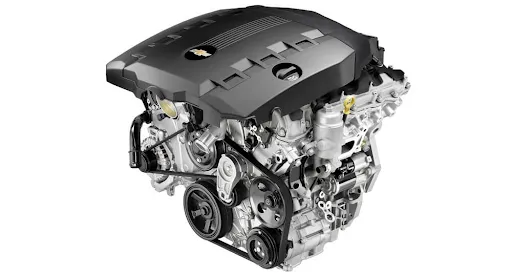Leading Tips for Inspecting Used Engines for Sale Before Making a Purchase
Leading Tips for Inspecting Used Engines for Sale Before Making a Purchase
Blog Article
Crucial Considerations for Making Sure Quality and Durability being used Engines
When considering the purchase of an utilized engine, ensuring its high quality and long life calls for a complex strategy. Maintenance background is a critical variable, as it gives understanding right into the engine's previous treatment and possible future integrity. Past documentation, an in-depth inspection of physical components-- such as belts, hoses, and seals-- can reveal hidden concerns. Efficiency screening is likewise important, supplying a snapshot of the engine's operational efficiency. Recognizing the subtleties of these evaluations and their ramifications can be complex. What are the essential strategies that can be employed to browse this complex assessment procedure properly?
Engine History Analysis
In the realm of made use of engines, an extensive engine history assessment is vital to guaranteeing quality and integrity. Understanding an engine's past can provide important understandings into its performance capabilities and prospective future long life. A careful background testimonial incorporates several crucial elements that play a substantial duty in evaluating an engine's problem. Firstly, upkeep documents are important. Normal maintenance, consisting of oil changes, filter substitutes, and set up tune-ups, indicate that the engine has been well-cared-for, decreasing the likelihood of unforeseen failures.
Engines that have undergone considerable repairs may have underlying concerns that might resurface. Analyzing the engine's gas mileage can serve as an indication of wear and tear. An engine made use of mainly for long-distance highway driving might be in better problem than one subjected to regular stop-and-go city traffic.
Fundamentally, an exhaustive examination into an engine's background is crucial for making educated buying choices. used engines for sale.
Comprehensive Assessment Overview
While comprehending an engine's background provides valuable context, a detailed inspection is the next step to guarantee its present condition aligns with historic data. The assessment should begin with a visual analysis, looking for indicators of leaks, rust, and uncommon wear. Evaluate the exterior for oil spots or coolant marks, which might indicate underlying problems.
Next, evaluate the engine's installing system for any kind of loose bolts or problems that can impact efficiency. Pay attention to the condition of belts and hose pipes, as these parts are critical for ideal engine capability. Examine for fractures, fraying, or any type of indicators of deterioration.

Identifying Wear and Tear
Acknowledging indicators of deterioration is vital for examining an utilized engine's longevity and dependability. It involves a meticulous exam of different engine components to determine their existing state and possible future efficiency. Usual important source indicators include visible deterioration, which can influence metal parts and jeopardize architectural stability. Corrosion on or around the engine block, cyndrical tube heads, and exhaust manifolds is particularly concerning.
An additional crucial element is inspecting the engine's seals and gaskets. Additionally, uncommon noises during engine operation, such as knocking or ticking noises, might indicate interior damage or extreme wear on relocating components like pistons or bearings.
The problem of belts and tubes is equally vital, as they play a crucial function in the engine's overall feature. Split or frayed belts and brittle tubes are signs of maturing that can cause engine failure if disregarded. Lastly, taking a look at the oil problem and filter can give understandings right into previous upkeep techniques, as dirty oil or clogged filters suggest neglect and accelerated wear.
Efficiency Screening Fundamentals
Evaluating the wear and tear of engine elements establishes the stage for an extensive assessment with efficiency screening. Performance screening serves as an essential step in determining the functional stability of a made use of engine.
Using dynamometers is an usual method in efficiency testing. These tools measure the engine's outcome throughout different problems, providing a detailed account of its capability. Additionally, on-road testing enhances dynamometer evaluations by observing engine actions under typical driving situations, guaranteeing it fulfills the required criteria for both safety and security and efficiency.
These devices analyze engine management systems, identifying faults in electronic parts that could impact performance. Comprehensive screening not only confirms the engine's operational status yet likewise aids in projecting future maintenance requirements.
Maintenance and Care Tips
Appropriate maintenance and care are important to extending the lifespan of an utilized engine and guaranteeing its constant efficiency. Continued Routine oil changes are extremely important; utilizing the maker's recommended oil type and grade can avoid too much deterioration. In addition, oil filters should be replaced simultaneously to preserve ideal lubrication and tidiness within the engine.
Keeping an eye on liquid degrees, including coolant, transmission fluid, and brake liquid, is essential. Making sure these fluids go to ideal degrees assists prevent overheating and other mechanical problems. Inspecting belts and hose pipes for signs of wear, such as splits or fraying, can avoid potential failings that might lead to pricey fixings.
Routine assessment of the air filter is additionally necessary, as a clean filter guarantees reliable air flow and burning, thus enhancing engine efficiency. see this site Stimulate plugs ought to be inspected and changed when required to keep reliable fuel burning and avoid engine misfires.
Finally, regular analysis checks using professional tools can recognize prospective concerns prior to they become considerable troubles. By adhering to these maintenance and care tips, made use of engine proprietors can guarantee their engines continue to be dependable, effective, and with the ability of doing more than a prolonged period.
Verdict

Report this page